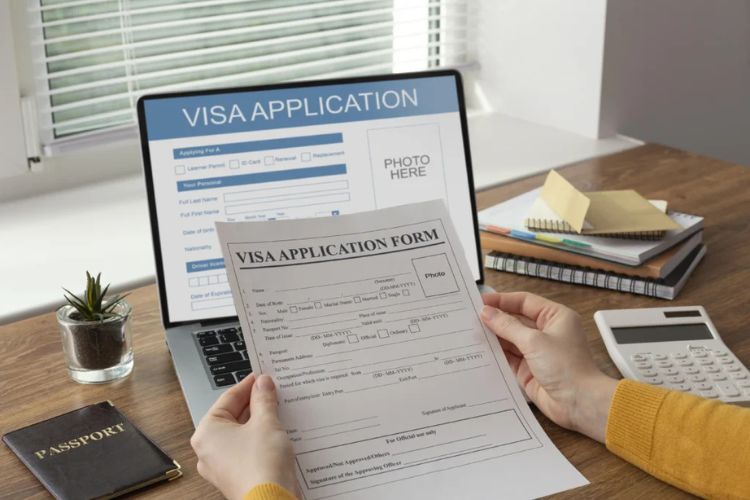If you’re thinking about bringing your family, relatives, or a friend over to the UAE, there are fresh rules that you’ll want to know. The UAE government has recently introduced updated income-based requirements as part of its sponsor family visa update. These changes aim to add clarity and fairness, ensuring that sponsors have sufficient financial means to host their guests comfortably.
Let’s see what’s changed, who it affects, and how you can make sure you meet the criteria.

What’s New, The Big Picture
The Federal Authority for Identity, Citizenship, Customs & Port Security (https://icp.gov.ae/) has revised the rules for sponsoring visit visas for non-residents coming in as family or friends. The key change: how much you earn per month now matters a lot. Before, the rules were more ambiguous or tied to profession and accommodation; now, there are clear salary thresholds based on how closely you’re related to the visitor (or if they are a friend).
These updates are part of a broader move to ensure that visa policies are sustainable, make sense economically, and support the UAE’s growth, especially in sectors like tourism, tech, AI, etc.
Income Thresholds: How Much You Need to Earn
Here’s the breakdown of the minimum monthly income you must have, depending on your relationship with the person you’re sponsoring. These are key numbers in the new sponsor family visa update.
| Relationship to Sponsor | Minimum Salary Required (AED/month) |
|---|---|
| First-degree relatives (e.g. spouse, children, parents) | AED 4,000 |
| Second- or third-degree relatives (e.g. siblings, grandparents, grandchildren, cousins) | AED 8,000 |
| Friends (non-relatives) | AED 15,000 |
So, for example: if you want to bring in your parents, spouse, or child (first-degree), earning AED 4,000/month is enough. But if you want to bring a cousin or grandparent (second/third-degree), it jumps to AED 8,000. If it’s a friend, you’d need AED 15,000.

Who Counts as “First-, Second-, Third-Degree” or “Friend”
It’s worth clarifying who fits in which category, because the income required depends on this. Based on the latest rules:
- First-degree relatives: spouse, children, parents.
- Second- or third-degree relatives: siblings, grandparents, grandchildren, aunts, uncles, cousins (depending on how distant) fall here.
- Friends: people who are not related by blood or marriage. These require the highest income threshold.
Proof of the relationship will be required when applying for the visa, such as birth certificates, marriage certificates, etc.
Why the Change (and What It Means)
So why the update?
- Transparency: Now the income requirements are clearly stated. That reduces confusion and inconsistent application.
- Financial accountability: The government wants to ensure sponsors are able to support visitors, which helps avoid cases where people overstay or face hardship.
- Balanced immigration: These updates are part of wider reforms, including new visa categories (for AI specialists, entertainment, etc.), humanitarian permits, and better regulation of visitor stays.
For many residents, this is good news. If you were in a profession not always recognized before, or if your income was just over some vague benchmark, these clear thresholds can help you plan better. And for authorities, it helps streamline approvals, reduce misuse, and ensure that visitors coming to the UAE are properly sponsored.

What You Need to Apply Under These New Rules
To satisfy the new sponsor family visa update requirements, here are some essentials you should have ready:
- A valid UAE residence visa and Emirates ID.
- Proof of monthly income: salary certificate, employment contract, perhaps bank statements.
- Documents showing the relationship (marriage certificate, birth certificate, etc.), attested if needed.
- Passport of visitor (valid for at least six months), and often a return or onward ticket.
Visa Durations & Extensions Under the New Rules
One of the biggest changes that often raises questions is: How long can my guest stay? And can the visa be extended under the new rules?
Standard Visit Visa Durations
Under the UAE’s visit visa system:
- You can get single-entry visas valid for 30 or 60 days.
- There also exist longer-duration tourist / visit visas (e.g. up to 90 days) depending on nationality and visa type.
- For tourism (not necessarily for family visits), the UAE offers a 5-year multiple-entry tourist visa under certain conditions.
These visas let visitors stay in the UAE for a fixed period (e.g. 30, 60, or 90 days). After that, extensions may be possible (within limits).
Extensions & Maximum Stay
Under the newer practice, here’s how extensions and maximum stay limits typically work:
- You can extend a visitor visa while staying in the UAE (i.e. without exiting and re-entering).
- The maximum total stay a visitor can have on a visit/visitor visa in a calendar year is now capped, commonly at 180 days (i.e. six months). The total includes the initial validity period + any approved extensions.
- In Dubai, the local GDRFA notes that a tourism visa can be extended multiple times, but not exceeding 120 days in total (i.e. total extension + initial stay cannot go over that limit) for the “extended tourist visa.”
- In practice, many apply for 30-day increments when extending.
- If a visa extension is processed, you’ll usually pay a fee (as set by ICP or relevant emirate). For example, the ICP’s “extend entry permit” service has AED 500 issuance fee and AED 100 application fee.
- Importantly, if you overstay (i.e. stay beyond what was permitted + extensions), fines kick in. Under newer rules, AED 50 per day is the standardized fine for overstaying a visit/tourist visa.
So in short: your guest might arrive with, say, a 30- or 60-day visa. You can apply to extend it (if eligible), but their total stay across all visits/extensions cannot exceed ~180 days (or in some emirates, 120 days, depending on visa type). Always double-check for the emirate in which you’re applying, Dubai, Abu Dhabi, etc., may have slight variations.
Common Pitfalls & Mistakes to Avoid
Navigating visa rules can be tricky. Here are frequent mistakes people trip over, and how to sidestep them:
- Assuming the old rules still apply: Because these income-based updates are fairly new, many sponsors still operate based on older thresholds or assumptions. Always check the latest ICP / emirate rules before applying.
- Missing the “degree of relation” factor: Remember: the income needed depends on whether you’re sponsoring a spouse/parent, distant relative, or friend. Expect much higher thresholds (e.g. Dh15,000) for sponsoring non-relatives (friends).
- Waiting until the last minute to extend: If your visitor’s visa is nearing expiry, delay could lead to overstay fines or rejection of extension request. File for extension before the visa expires.
- Overlooking document quality or attestation: Missing seals, poorly translated documents, or lacking certified proof (e.g. relationship certificates) can result in delays or rejections.
- Ignoring total stay limits: If your guest has been in the UAE earlier in the same year, that counts toward their 180-day annual limit. You can’t reset the clock just by exiting & re-entering.
- Forgetting fine implications: Overstay fines can pile up quickly (AED 50/day). It’s not just a small penalty, it can block future visa approvals.
- Assuming all visas are extendable: Some visa types (especially certain short tourist or entry permits) might not be extendable. Always check the specific visa type your guest holds.
Tips for Smooth Approval
Here are practical tips to improve your chances of success:
- Start early: Don’t wait until the last minute to submit the application. Visa processing can take a few days.
- Be precise and consistent: Use consistent names, dates, and spellings across all documents.
- Show strong financial proof: Provide salary slips, bank statements, employment contracts, etc. The more credible and clear your financial standing is, the better.
- Provide attested relationship proof: Birth and marriage certificates (as applicable) should be officially attested (by your country’s authorities) to avoid rejections.
- Use legal channels: Submit via ICP online portal, UAEICP app, or approved visa centres to reduce errors.
- Track the status: Use the portal to check for document remarks or queries, and respond swiftly.
- Don’t overstretch extensions: If the stay is nearing the upper limit, plan their return or visa change beforehand.
- Check emirate rules: Dubai, Abu Dhabi, Sharjah etc. might have slightly different procedures, fees, or extension rules.
Frequently Asked Questions About the Sponsor Family Visa Update in the UAE
What is the new sponsor family visa update in uae all about?
The UAE has introduced income-based rules for sponsoring relatives or friends on visit visas. Instead of focusing on your job title or profession, the government now looks at your monthly income to determine eligibility. This update aims to make the system fairer and more inclusive for all residents.
Who can I sponsor under the new rules in uae?
You can sponsor your immediate family, such as your spouse, children, or parents.
In some cases, you can also bring extended family members like siblings or in-laws, as long as your income meets the new requirement. Sponsoring friends is allowed too, but at a higher income level.
Do I still need to show my job title or profession in UAE?
No, not anymore. The UAE has removed the profession-based restriction that used to limit visa sponsorship to specific occupations. What matters now is your monthly income and ability to financially support the visitor during their stay.
How long can my guest stay in the UAE?
Visitors can stay for 30, 60, or 90 days, depending on the visa type you apply for. In some cases, the visit visa can be extended up to a maximum of 180 days in a year. Extensions are available through ICP or GDRFA portals, depending on the emirate.




